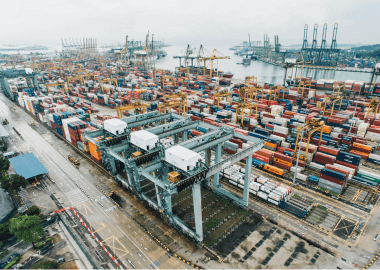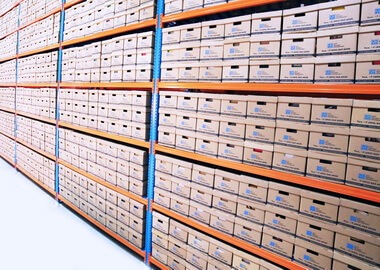Complete Breakdown of Software for Logistics: 8 Major Types and Their Benefits
We know investing in software for logistics today isn’t just tough – it’s confusing and a bit nerve-wracking. 2024 Modern Materials Handling survey shows that a third of logistics companies are playing it safe, while another third is hitting pause.
But the final third? They’re investing. And in the mid to long run, they could become industry leaders, with faster operations and smarter decisions.
Thinking about joining that group but feeling overwhelmed by all the types of logistics software and their abbreviations? We’ll break them down for you and show what your competitors are using, so you can make the best investment decision.
1. Enterprise resource planning (ERP)
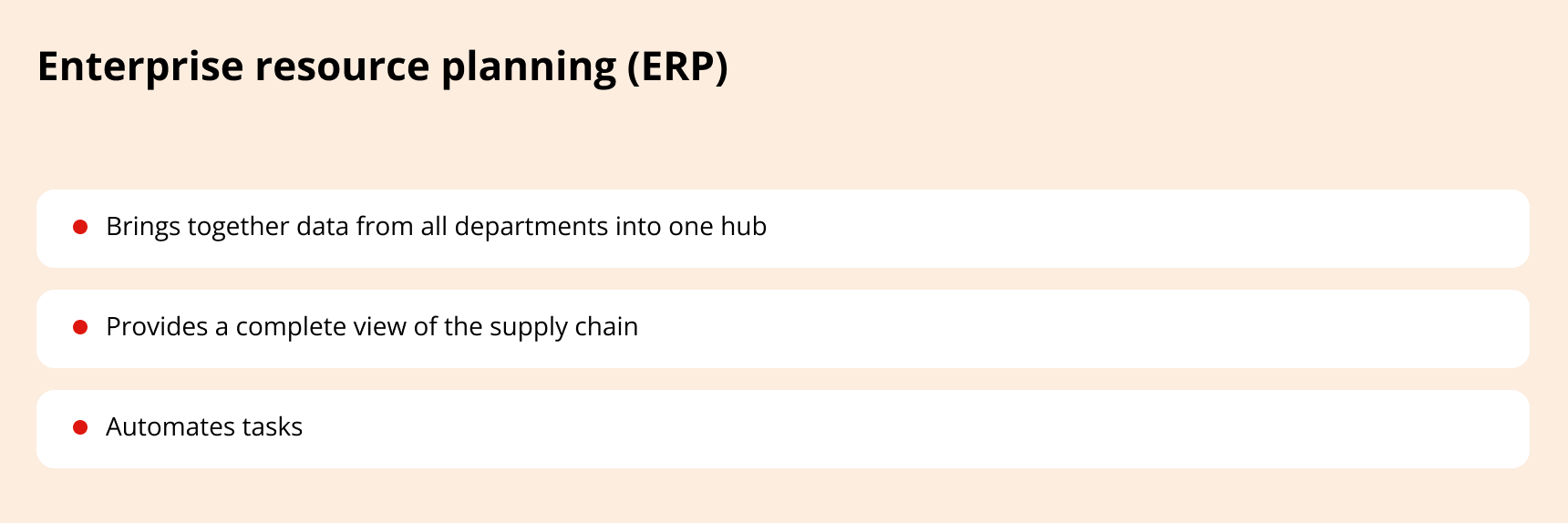
ERP is often seen as a “back office” powerhouse, uniting all your core business processes – like accounting, HR, finance, and sales – into one unified system. It’s the most versatile and multi-tasking software used in logistics.
What can ERP do for you?
- Complete visibility. It provides an overview of your entire supply chain, enabling smarter management and decisions.
- Task automation. ERP automates manual tasks such as invoice processing and payroll management.
- Centralized insights. The software serves as the hub for logistics, collecting and analyzing data to offer insights into profitability, inventory, and financial metrics.
And there’s more. ERP is truly a jack of all trades. Open a system like SAP S/4HANA, and you’ll find customizable tabs, dashboards, and widgets that can be tailored to your needs.
If you’re looking to automate your logistics or streamline operations, ERP is usually a must-have. Unlike other software types that might be optional, ERP is essential for most logistics businesses.
2. Supply chain planning (SCP)
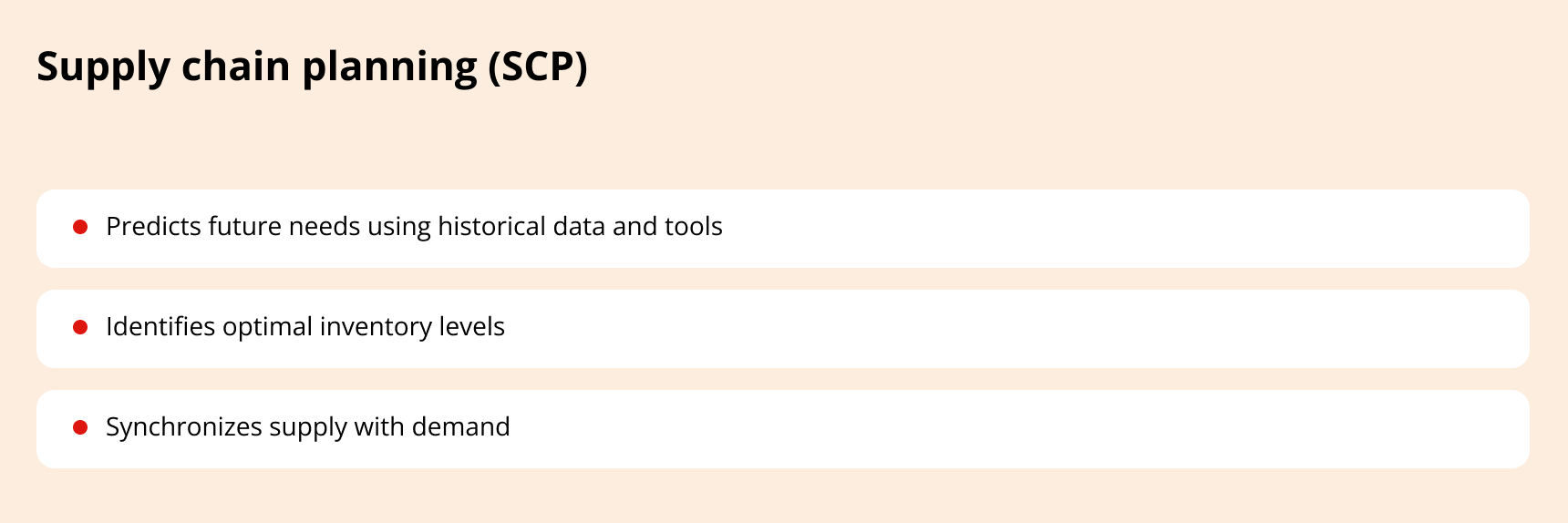
Supply сhain planning (SCP) relies on data from ERP but it has a distinct role. While ERP gives you a broad view of your business, this logistics planning software focuses on ensuring demand and supply are in sync.
SCP uses historical data, forecasting tools, and other data sources to predict what you’ll need, figure out how much to produce, and find the best places to store products close to your customers. It handles everything from planning and inventory to logistics, making sure your products are made and delivered efficiently.
Why are companies increasingly using SCP?
- Changing consumer demand. Social media and eCommerce set trends quickly, so businesses need to keep up with rapidly changing demands.
- Complex supply chains. Global suppliers and warehouses need real-time data to stay in sync.
- Online shopping pressure. The software serves as the hub for logistics, collecting and analyzing data to offer insights into profitability, inventory, and financial metrics.
3. Warehouse management systems (WMS)
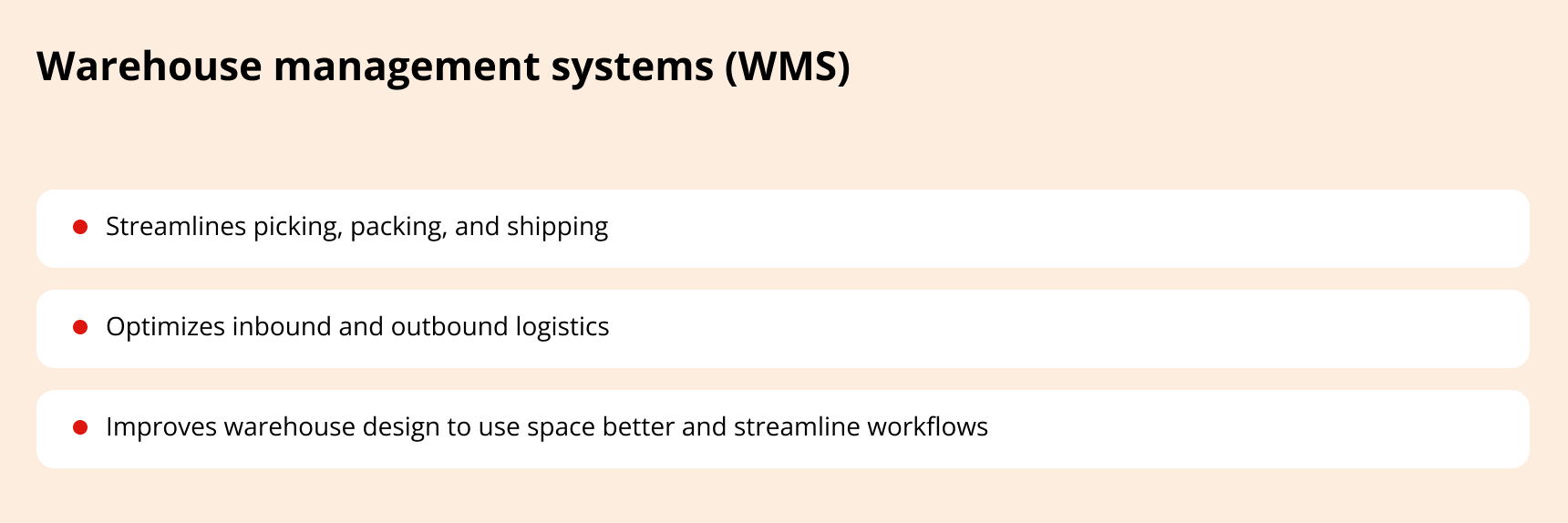
WMS is specific software that focuses on optimizing warehouse operations.
What operations? They can include, among others, inventory control, order fulfillment, shipping, receiving, and warehouse layout optimization.
WMS forms the backbone of smooth warehouse processes. That’s why its market is set to double globally by 2029. This rise is driven by:
- Globalization and eCommerce. The first step towards good data hygiene is to have the process and people who take care of the data within the organization. You should establish adequate data governance that determines the tools and procedures for data management and access control.
- Automation. Labor shortages and automation needs drive WMS adoption for managing robotic systems.
- AI and big data.. Advanced WMS systems use new tools for faster, more accurate decision-making.
- Accessibility.. Cloud-based and on-demand WMS make these systems more affordable, especially for smaller businesses.
Logistics management system software comes in different shapes and forms
Off-the-shelf or custom-built? Integrations or a fresh start? Let’s find the best fit for you.
Contact Digiteum4. Warehouse execution systems (WES)
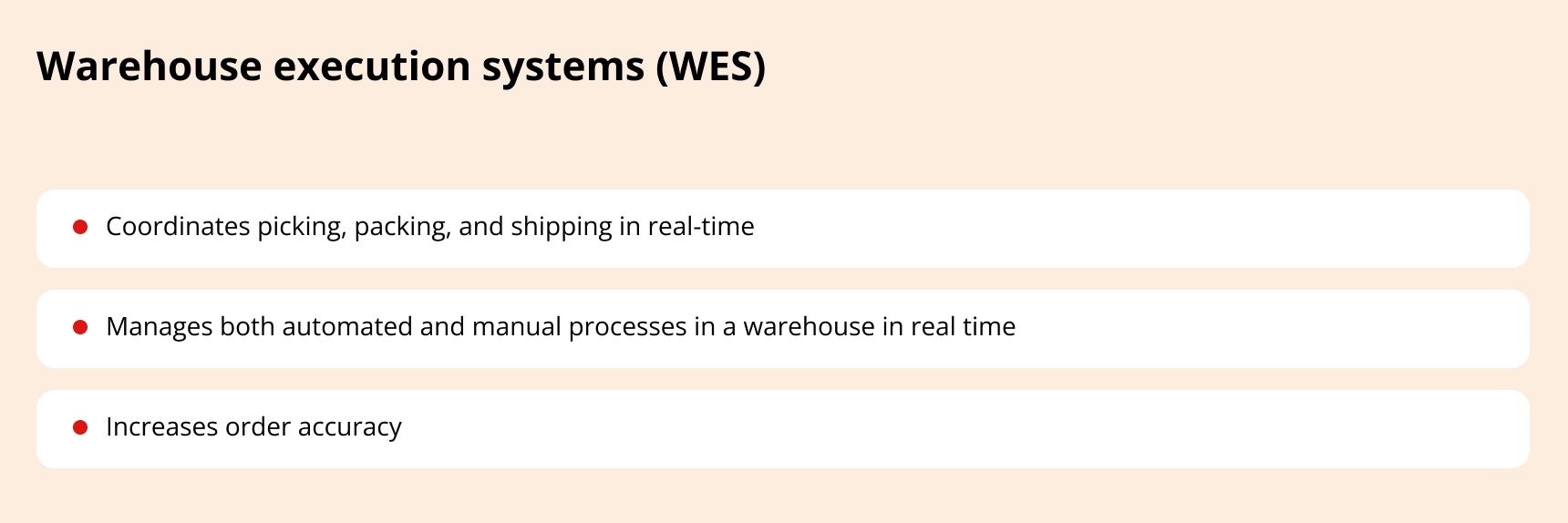
If WMS streamlines warehouse processes, a warehouse execution system (WES) takes things further. WES integrates both automated systems and manual processes, coordinates tasks in real-time, and ensures that orders are picked, packed, and shipped efficiently, whether by robots or people.
As warehouses increasingly automate, the value of WES grows. For example, when Automated Guided Vehicles (AGVs) move goods, WES ensures they work seamlessly with conveyor belts and human pickers.
WES directs an AGV to deliver a pallet to a conveyor belt. The conveyor belt then moves the pallet to a sorting area, where human pickers complete the task. This real-time coordination enhances efficiency and accuracy in warehouse operations.
5. Transportation management systems (TMS)
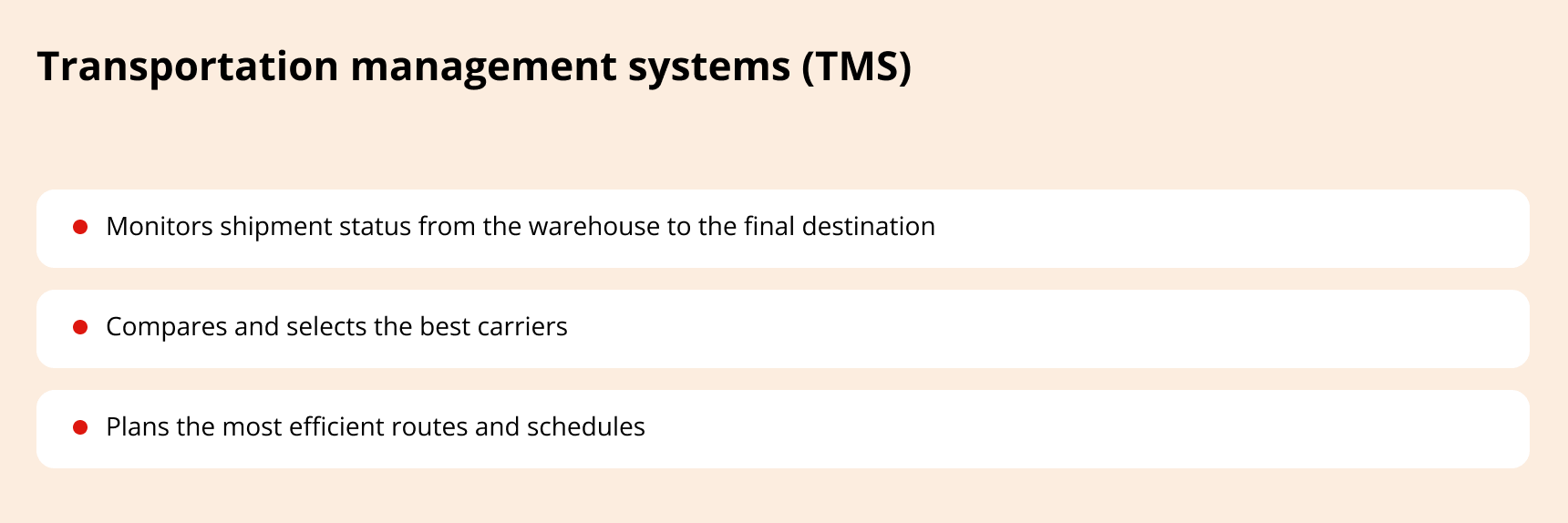
A transportation management system (TMS) helps plan, execute, and optimize both inbound and outbound deliveries. It complements a WMS system by managing the movement of goods from warehouses to their final destinations. A TMS can be part of a broader ERP system or used as a standalone solution.
For example, you can use this transportation logistics software to:
- Optimize routes. How can a supply chain be sustainable? By using more efficient routes and schedules that reduce transportation costs and delivery times.
- Manage carriers. Compare and select the best carriers based on cost, performance, and availability.
- Track shipments. Monitor the real-time status of shipments from the warehouse to the final destination.
6. Labor management systems (LMS)
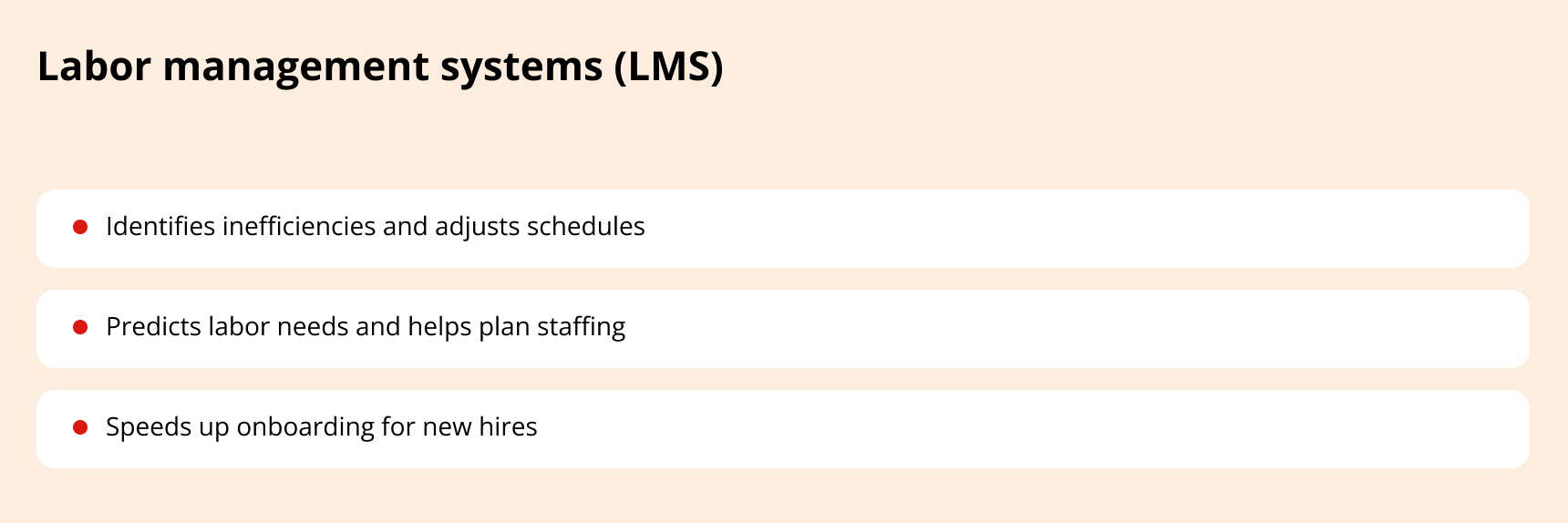
A labor management system (LMS) helps businesses optimize their workforce. This is a growing need as 76% of logistics operators face labor shortages amid rising eCommerce demands.
Here’s how an LMS can transform your operations: A 5,000-square-meter warehouse has 50 workers struggling with order fulfillment. Instead of hiring additional staff, the LMS identifies inefficiencies and gaps in shifts. The manager can then adjust schedules and reallocate resources, improving operations and avoiding extra hiring costs.
Other key benefits of an LMS include:
- Automating training for new hires to speed up their onboarding.
- Keeping records of certifications that employees need to have, such as safety training, specialized skills, or legal requirements.
- Forecasting labor needs for peak seasons, like holidays, to plan staffing and training in advance.
7. Asset management software
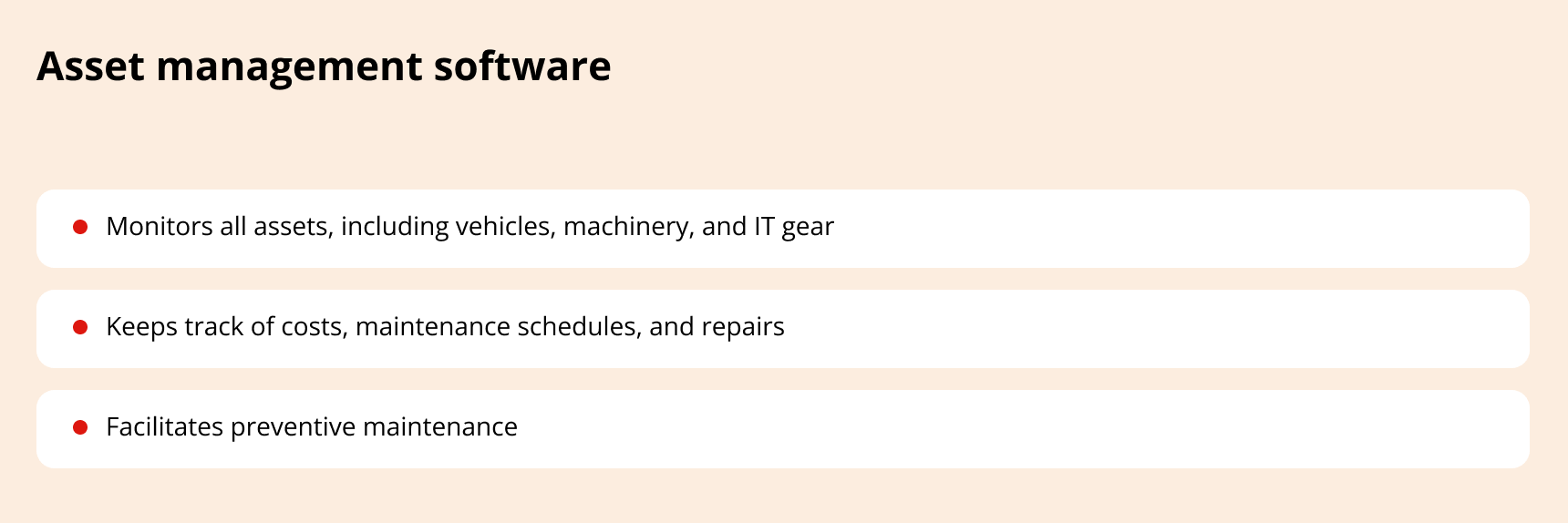
Asset management software helps you keep track of all your assets, from vehicles and machinery to IT gear, digital content, and real estate. The software monitors costs, maintenance, repairs, performance, and compliance.
By integrating with ERP and SCP logistic management software, it ensures everything runs smoothly, prevents breakdowns, and extends the life of your assets.
As logistics operations grow more complex, businesses are increasingly using asset management tools. For example, a company with a large fleet of delivery trucks uses asset management for preventive maintenance. This prevents costly repairs and breakdowns.
8. Distributed order management (DOM)
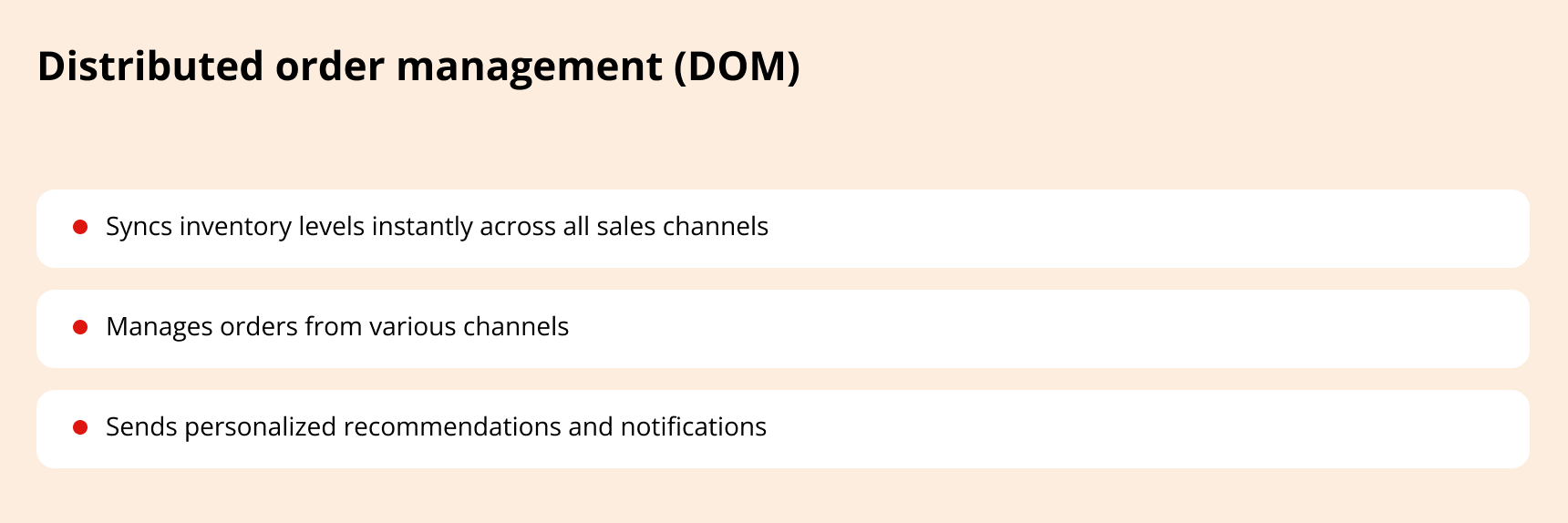
Imagine a retail chain with an online store, mobile app, and brick-and-mortar locations. During a busy sale, orders come from all these channels. Without a distributed order management (DOM) system, managing inventory becomes tricky.
For example, a customer buys the last unit of a popular item online. But if the inventory isn’t updated in real-time, the mobile app might still show it as available. This can lead to overselling and unhappy customers.
With a DOM system, inventory levels are updated instantly across all platforms. When the online store sells the last unit, the system immediately updates the app and in-store systems. This prevents overselling and keeps customers satisfied by ensuring accurate stock levels and smooth order processing.
Companies have been adopting various types of software for logistics recently. What’s next on their agenda?
Here’s a snapshot from the 2024 Modern Materials Handling survey:
- Warehouse management systems (WMS) continue to be the most widely adopted.
- They’re followed by labor management systems (LMS) and supply chain planning (SCP) software.
- Transportation management systems (TMS), warehouse execution systems (WES), asset tracking software, and distributed order management (DOM) are also popular choices.
Looking ahead, here’s what companies are planning for the next two years:
- 29% plan to evaluate, purchase, or upgrade their LMS (up from 15% last year).
- 25% will focus on WMS upgrades.
- 25% aim to upgrade or adopt WES (compared to 13% last year).
- 13% will look into asset tracking and TMS.
- 10% will consider enhancements in supply chain management and planning software.
We hope you now have a clearer idea of the types of logistics software that can address your needs.
The next step is deciding how to choose the right software. First, determine whether you want a custom solution or an off-the-shelf option.
Here’s advice from Katherine Lazarevich, Digiteum founder and senior tech expert:
When analyzing different platforms and services […], consider the scale, flexibility, and range of each solution. Then choose the service proportional to the scale of your business and operations.
In logistics, ready-to-use solutions are perfect when:
- You want to automate standard tasks like inventory checks, stock updates, picking, packing, and shipping.
- You’re starting or revamping your business and want to apply industry best practices quickly.
- Speed is crucial, and you need a quick setup.
- You have the resources to customize an off-the-shelf solution.
Choose custom logistics software development when:
- Your business has unique workflows or processes that standard solutions can’t handle, like complex returns or unusual inventory locations.
- You use older systems that don’t integrate well with modern SaaS. In this case, you’ll need custom solutions to overcome these challenges in supply chain integration.
- You need specialized insights or reporting tailored to your unique KPIs and metrics that out-of-the-box solutions don’t provide.
- Your operation depends on rare or unique elements, like specific devices or middleware, that typical SaaS solutions don’t support.
Example: Overfli, a US client, chose to work with us because their unique RFID readers weren’t compatible with off-the-shelf SaaS solutions. So, they came to Digiteum. We developed a custom mobile app that integrates smoothly with their devices, effortlessly syncing data to their central management platform.
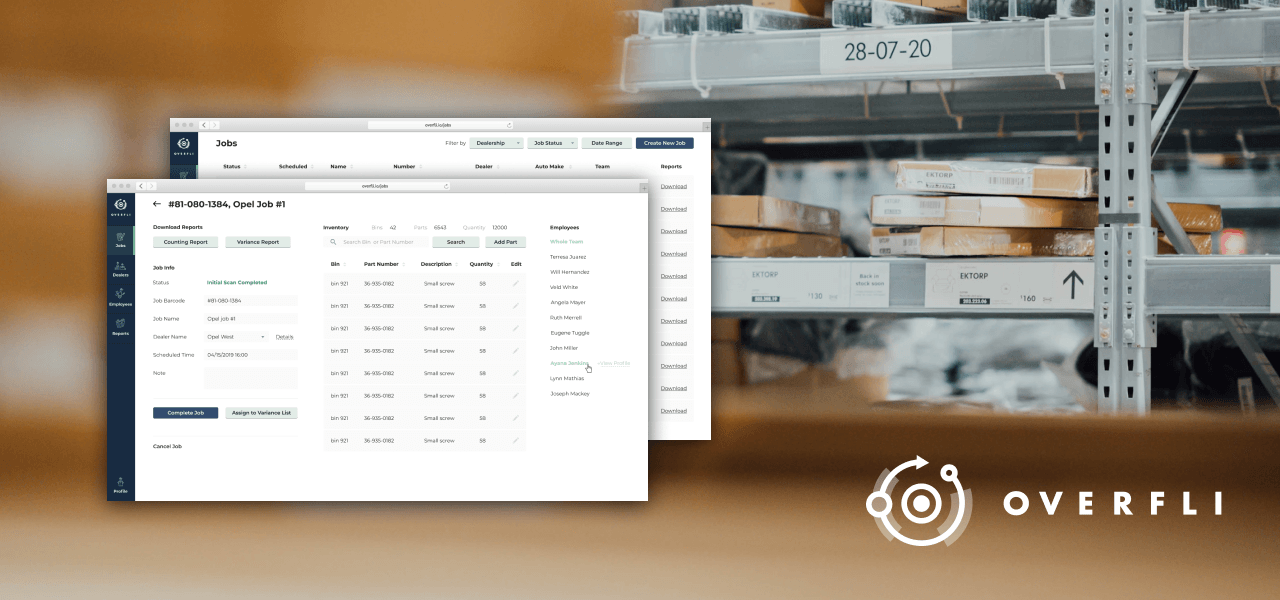
Still trying to decide which software for logistics to choose or whether to build it from scratch? Let’s chat! Contact Digiteum, and we’ll help you weigh the pros and cons to find the best solution for your needs.
Why trust us:
- We’ve been providing custom logistics software development services since 2010.
- We build transportation platforms, inventory apps, and real-time tracking tools for market leaders and ambitious service providers. Just check out our portfolio – our solutions deliver.
- Got a project with loads of data from various sources? We’re all in! Our big data engineers and senior developers have been handling complex projects with petabytes of raw, unstructured data.
- Last but not least: trust is our core value and the foundation of our long-term relationships. We fully commit to our clients’ projects, keep them updated, and maintain transparency in all our work. This is why many of our clients have been with us for years – and even decades!
Get expert IT teams with Digiteum
Finding top IT talent is tough, time-consuming, and expensive. Let Digiteum build or expand your team for you.
Hire logistics developers

